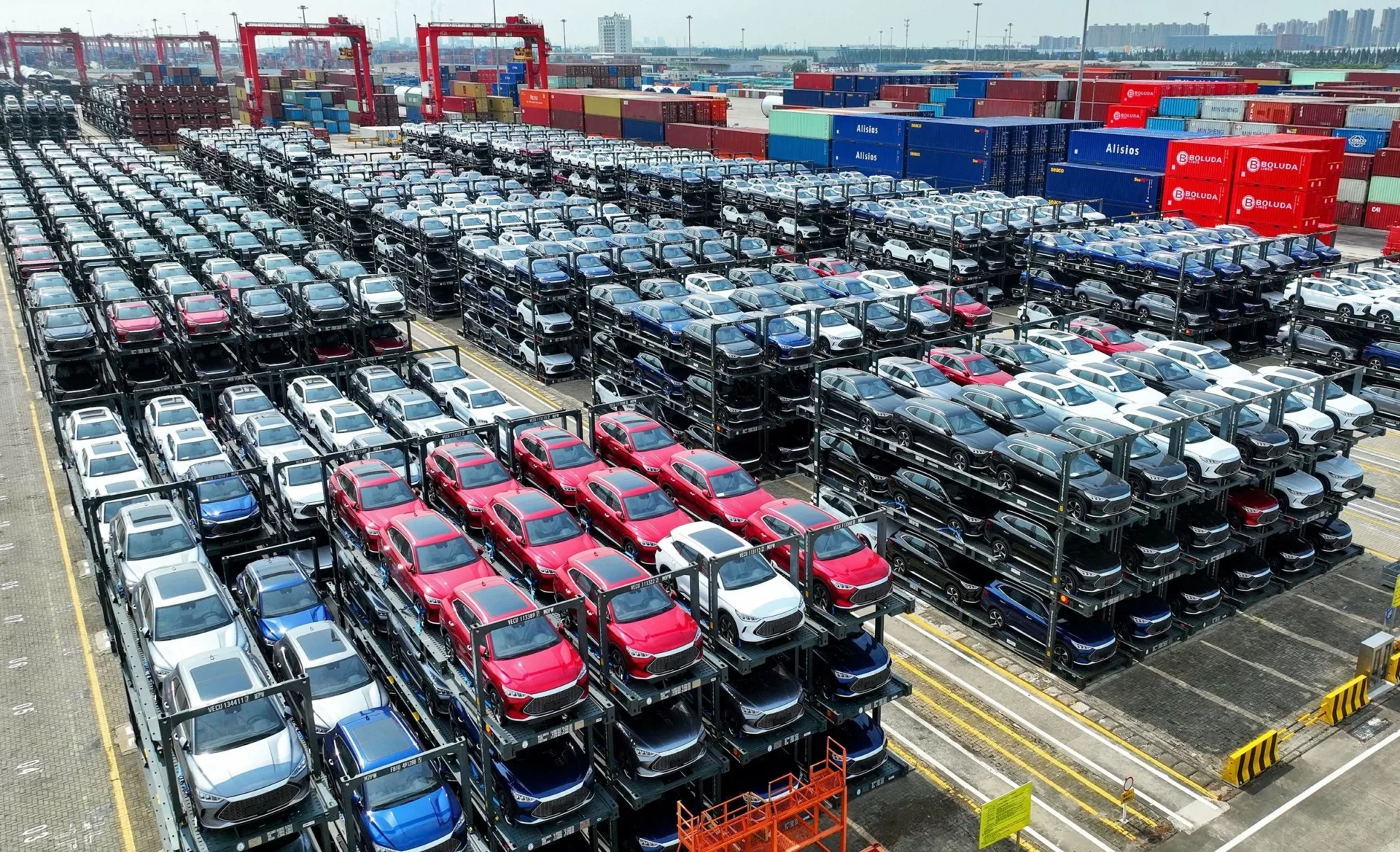The European Union is taking a bold stance in the face of growing trade tensions with China, announcing on Friday that they will move forward with imposing substantial tariffs on electric vehicles manufactured in China. This decision has been met with mixed reactions, with Germany, Europe’s largest manufacturing economy, publicly rejecting the move. However, the EU executive remains firm in their resolve to safeguard the interests of the EU automotive industry and protect fair and free trade within the global market.
The announcement comes after months of discussions and negotiations, as the EU closely monitored the impact of China’s rapidly growing electric vehicle market on its own. With China being the world’s largest producer and consumer of electric vehicles, the EU has become increasingly concerned about the potential disruption to its own automotive industry. This is especially true for Germany, which is home to some of the world’s most renowned car manufacturers, such as Volkswagen, BMW, and Daimler.
The EU executive’s decision to impose tariffs on electric vehicles from China is a direct response to the Chinese government’s policies, which heavily subsidize the production and sale of electric vehicles. This has given Chinese manufacturers an unfair advantage in the global market, making it difficult for European manufacturers to compete on a level playing field. By taking this step, the EU aims to address this imbalance and ensure that its domestic automotive industry remains competitive and sustainable.
This move has been met with praise by European manufacturers, who have long been feeling the pressure from China’s aggressive policies. In fact, the European Automobile Manufacturers’ Association (ACEA) has been advocating for such tariffs, highlighting the need to protect European companies from unfair competition. The EU’s decision has also been welcomed by other industry players, such as the European Association of Automotive Suppliers (CLEPA), who believe that this will help create a more balanced and fair trade environment for European companies.
However, not everyone is on board with the EU’s decision. Germany, which is heavily reliant on exports and has strong trade ties with China, has expressed its reservations. The German Economy Minister, Peter Altmaier, has stated that he does not support the implementation of tariffs and believes that the EU should instead focus on negotiating with China to achieve a mutually beneficial solution.
The tensions between the EU and Germany regarding this issue highlight the complex nature of international trade. While on one hand, the EU is taking concrete steps to protect its own industry, on the other hand, Germany is concerned about the potential repercussions on its trade relationship with China. It is a delicate balance that the EU executive must navigate carefully, ensuring that the interests of all member states are considered.
Despite this, the EU is resolute in its decision to move forward with the tariffs. In fact, this move is not a sudden or impulsive reaction to the current situation. The EU executive has been considering this option for months, holding extensive consultations with all stakeholders to ensure that a fair and well-informed decision is taken. Additionally, the implementation of these tariffs will be gradual, allowing sufficient time for negotiations to continue and for a more sustainable long-term solution to be reached.
Some critics have argued that imposing tariffs will only escalate the tension between the EU and China, resulting in potential retaliatory measures from the Chinese government. However, the EU has made it clear that it is open to negotiating with China and finding a mutually beneficial solution that addresses the concerns of both parties. The introduction of tariffs serves as a bargaining tool in this negotiation process, giving the EU the necessary leverage to achieve a more balanced trading relationship with China.
In the long run, it is clear that the EU’s decision to impose tariffs on Chinese electric vehicles is a step in the right direction. It not only protects the interests of the EU automotive industry but also promotes fair and free trade within the global market. The EU’s firm stance against China’s unfair trade practices sends a strong message that it will not stand idly by while its industries are put at a disadvantage. And while there may be initial repercussions, it is a necessary precursor to achieving a more sustainable and equitable global trading environment.

